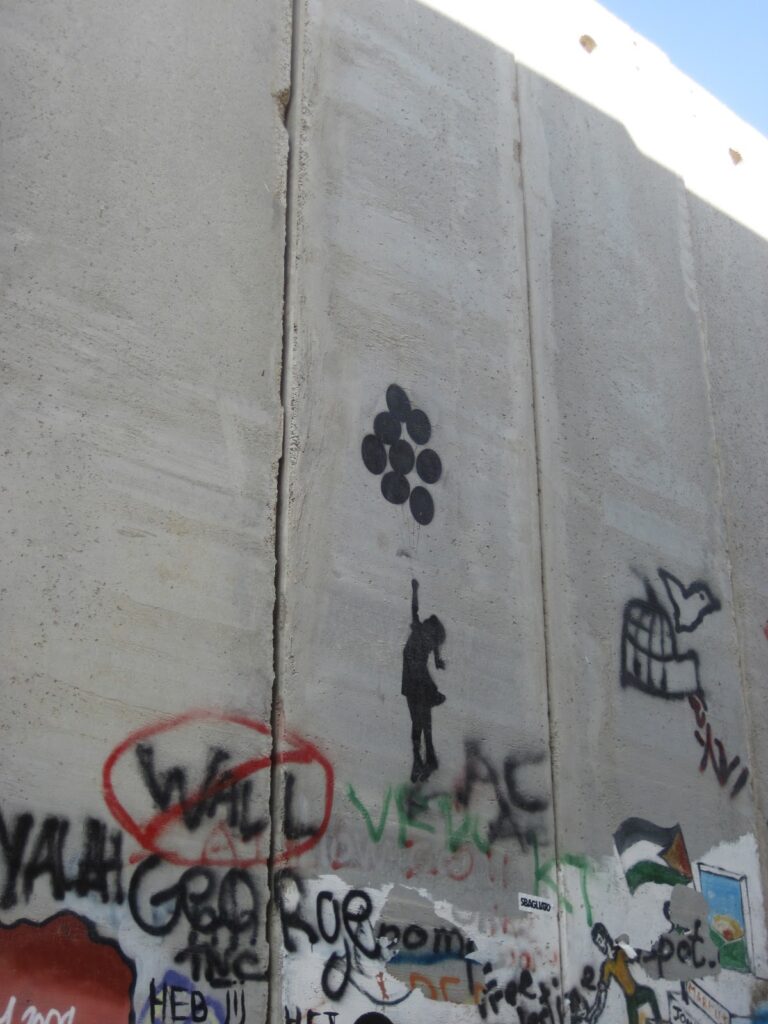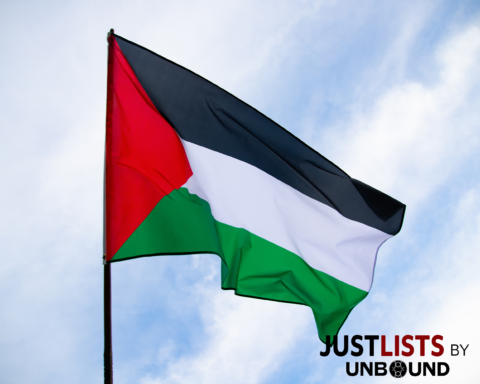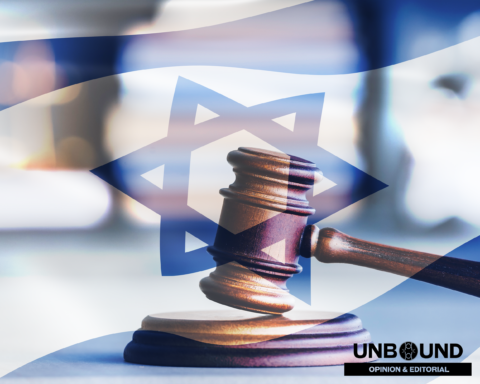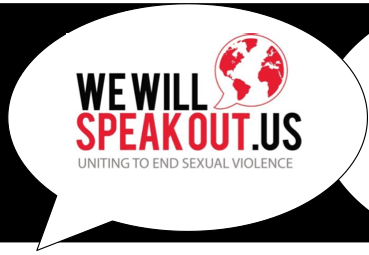How not to shop while they drop—bombs
By Chris Iosso, General Editor of Unbound
The grim truth about Israel’s current bombing of Gaza is that the U.S. government will do very little to limit the one-sided collective punishment or correct the claims that this pre-election military campaign by the Netanyahu government is about “defense.” The casualty toll already confirms the vast inequality of power, recalling the last invasion of Gaza in late 2008 and early 2009 that killed 1400 Palestinians to 14 Israelis. The constant and deliberate calibration of Israel’s military activity is referred to, according to The New York Times, as “cutting the grass,” a term that denies the people of Gaza both their rights and their humanity. Naturally, Unbound joins all calls for ceasefire—always appropriate—and for UN observers for the Israel/Gaza border on an on-going basis. Human lives are at stake and equal in God’s eyes, despite differences in power, ideology, and faith.
This brief article has four parts. It will begin by commenting upon recent church statements related to Gaza, based on the convictions that all peoples deserve self-determination and that force alone will always mean injustice. Then we look at two aspects of the current Gaza situation: international hostility at the United States as well as Israel and the context of unending military occupation, of which the current massive punishment bombing is only an intensification. We will conclude by reaffirming the action of boycotting the products of Israeli settlements on Palestinian land, one small way for people of conscience to resist the continued crushing of human hope in Palestine.
Article Structure:
- Recent Church Statements/Background
- Growing International Hostility
- The On-Going Military Occupation
- The logic of nonviolent economic pressure
RECENT CHURCH AND OTHER BACKGROUND ON THE GAZA CRISIS
On November 13, 2012, Stated Clerk Gradye Parsons issued a statement calling for a cessation of rocketfire on Israel and an end to further exchanges of violence. On October 5, 2012, fifteen church leaders wrote members of Congress calling for military aid to Israel to be conditioned on compliance with human rights law, as affirmed for all other recipients of U.S. aid, including the Palestinians. Most of the more than $3 billion Israel receives every year is military aid, and Israel is by far the largest recipient of U.S. taxpayer dollars, although it is far from being a poor country (ranking 17of 194 countries on the 2011 Human Development Index). The response to the letter by certain Jewish synagogue and advocacy groups was to cancel a dialogue meeting, with members of these groups (which included J Street) alleging anti-Semitism, etc. Watching the Israeli government threaten another military invasion of Gaza while blasting its already degraded public buildings suggests that the Church leaders were quite on target themselves back on October 5; the Israeli military will use its power to control Palestine as long as that power is unconditionally subsidized by the United States.
But who started it? The Israel Palestine Mission Network cautioned against depending on news reports accusing Hamas of starting the intensified violence. A report by Emily Hauser attempts to present what an Atlantic Magazine editor calls a “symmetrical” account of the escalation. The church’s point, in general terms, is to look at the basic problem of the occupation that has, in the case of Gaza, intensified since Israel imposed a blockade in 2007 to punish that population for voting in a free election for Hamas—an Islamic party that Israel originally encouraged as an alternative to the Palestinian Liberation Organization. Obviously, it is perceived as a matter of honor by Hamas and more extreme groups that they respond in some fashion to killings by Israel of Palestinians, which far outnumber killings of Israelis. The improvement in Palestinian rocket capacity seems more than equally matched by Israel’s “iron dome” missile defense system, largely a gift of the United States.
Another dimension to the exchanges is provided by Gershom Baskin, the longtime peace activist instrumental in negotiating the release of Gilad Shalit, who reports that talks were underway regarding a permanent truce with Ahmed Jabari, the Hamas military leader assassinated by an Israeli missile. While some Hamas rhetoric adamantly rejects the undeclared boundaries and even existence of Israel as a state, in practice both Israel (which prevents a Palestinian state) and Hamas have observed truces. A fuller listing of Presbyterian statements, including a call for cooperation between the Palestinian Authority and Hamas, can be found here.
GROWING INTERNATIONAL HOSTILITY
News reports on Monday, November 19, indicate that President Obama’s trip to Myanmar, part of his attempted re-balancing of U.S. interests to Asia, is countered by the Gaza war. A Washington Post article focuses on the feelings in Egypt, quoting a pragmatic schoolteacher who says: “We are all against Israel,” but sees his country’s economy preventing a stronger response (Washington Post, “Egypt angry but doesn’t want war with Israel,” by Michael Birnbaum, p. 1, 11/19/12). Multiply Egypt’s feelings by the 50 or so countries with active forms of the Muslim Brotherhood, plus many developing countries who receive very different news from that seen in the U.S., it is not hard to imagine how the “martyrdoms” in Gaza will reinforce a narrative about U.S. empire. Certainly the Israeli political community is aware of the likely hostility, some of which is seen as inevitable. (For an English language review of Israeli political debate, go here.)
However severely the Israelis decide to damage the livability of Gaza (and some see a plan to encourage as much emigration as possible through Egypt’s Rafeh crossing), the international response to the violence will be reflected in the vote at the United Nations for Permanent Observer Non-Member State status for Palestine. The United States has already signaled its opposition to any “unilateral” initiatives by the Palestinians, and blocked previous efforts at Palestinian statehood and/or UN membership, but the vote in the UN General Assembly will likely very strongly support upgrading Palestinian status (the U.S. has only formal veto in the Security Council). The Palestinian Authority needs to weigh this move in light of threatened withholding of tax monies by Israel and financial punishment of the UN by the United States (both of which have occurred in the past). As of this writing, however, the Palestinian bid is still projected for late November.
One additional dynamic concerns Iran and the desire of the Netanyahu government to provoke a U.S. attack (beyond severe sanctions) or conduct such an attack itself at some point. The Gaza bombardment further constricts the Obama administration’s room to maneuver in relation to a still unconfirmed potential nuclear weapons program.
BOMBING GAZA IN THE CONTEXT OF THE OCCUPATION
Over 50% of Gaza’s population descends from Palestinians forced out of what is now Israel in the 1947-49 warfare. Historically, this population has been poorer and less educated than those on the West Bank. When the Israeli government under Ariel Sharon in 2005 closed settlements in Gaza (destroying these properties on the way out), the attempt was made to claim that the occupation had ended. This is not the case, given Israeli control of most borders, including fishing beyond a three-mile limit and expropriation of 35% of Gaza farmland as part of a security barrier. In the period since the Hamas election in 2006, the blockade tightened the noose around Gaza, and Israeli planners carefully calculated how little food they could allow into the enclave and not quite starve people.
Israeli attitudes have been hardening against the Palestinians for some time, as many Jewish American as well as Israeli commentators have noted (Avnery, Beinart, Burg, Grossman, Judt, Peled, etc.). A recent poll confirmed that 58% of Israelis already consider what Palestinians suffer to be “apartheid”; 74% support separate roads for settlers; and 69% oppose giving Palestinians in the West Bank the vote if it is formally annexed. Christian institutions as well as Muslim mosques have been vandalized and burned by settlers, who also mob Palestinians, uproot olive trees, and commandeer houses.
For 15 years, Jeff Halper, founder of the Israeli Organization Against Home Demolitions, has fought the advance of Israeli settlements and the “matrix of control,” which assists often-violent settlers and stifles Palestinian travel and economic development. Halper has concluded that plans to annex Area C, 60% of the West Bank, and the on-going strategy of “evict and Judaize” in Jerusalem, make a one-state solution the best option, compared with ware-housing or apartheid. The PC(USA) and other churches continue to affirm the two-state solution, but it is hard to argue that the steady increase in settlers (to 450,000) is not a long term expansionist and exclusivist strategy.
John Mearsheimer of the University of Chicago, an analyst of the Israeli Lobby, has suggested that Israel will not invade, as its objective remains a “Greater Israel” controlling disempowered enclaves of demoralized Palestinians. Mearsheimer sees Netanyahu’s January electoral chances improving with the military campaign, following the failure of his very public support of Mitt Romney in the U.S. election. But ultimately Mearsheimer sees Israel unable to carry on an apartheid state for too long. That is probably cold comfort to the Palestinians and perhaps an underestimation of international political pressure on both the U.S. and Israel.
THE LOGIC OF NONVIOLENT ECONOMIC PRESSURE
Without denying the right of Palestinians to self-defense, which under international law can mean counter-violence, leaders across Christian community have explicitly called for nonviolence and economic pressure in the document Kairos Palestine. Of the main approaches, Boycott, Divestment, and Sanctions, all shown to be effective in the case of South Africa, the 2012 General Assembly of the Presbyterian Church (U.S.A.) affirmed a boycott of all goods made by Israeli enterprises in the illegal settlements (only Israel argues that the territories are “disputed”). It should be noted that the United Methodist Church and the United Church of Canada adopted virtually identical boycott positions, focusing not on all products of Israel, but on those produced in occupied Palestine (for a full list of boycott supporters, click here). Here is the Assembly’s action:
- Call upon all nations to prohibit the import of products made by enterprises in Israeli settlements on Palestinian land.
- Call for the boycott of all Israeli products coming from the occupied Palestinian Territories, including AHAVA Dead Sea Laboratories Beauty Products and all date products of Hadiklaim, The Israel Date Growers Co-Operative Ltd, often marked by the brand names: King Solomon Dates and Jordan River (not Israeli products from Israel.)
- Direct the Stated Clerk to communicate this action to all other PC (USA) councils and entities and invite and strongly encourage those groups and organizations to endorse this boycott until significant progress toward Palestinian rights and independence
Nonviolent economic pressure is not the only approach for Christians and others of good will to take in favor of Palestinian freedom and self-determination. Contacting Congress and the President, speaking with supporters of Israel including Christian Zionists, using Palestinian guides, and insisting on entering the “Occupied Territories” (like Bethlehem, surrounded by the Wall) when visiting the region… these and more are contained in General Assembly policies (such as this one). An ethical argument for boycott is provided in the Advice & Counsel memorandum following the boycott action cited above, concentrating on the themes of effectiveness, integrity, and solidarity. The method of boycott (and other economic pressure) can be accompanied by efforts to find investments in occupied Palestine that benefit Palestinians and do not contribute to the occupation. The logic of the boycott and other methods to avoid supporting the settlements holds whether or not a cease-fire is achieved, though we pray that it will be achieved and will hold. Yet as long as Palestinians are deprived of their rights, the certainty of suffering and the likelihood of violence remain.
In terms of focus for boycott support, several widely marketed products can be noted: Ahava Cosmetics, Soda Stream equipment, Jordan River and King Solomon Dates, Carmel Produce, and Gush Etzion wines. The Israel Palestine Mission Network listing is posted here. The Soda Stream situation is described in detail here. Not all products of settlements are so labeled, of course; some are allowed to be labeled products of Israel. (A complete listing of products made in settlements includes many not marketed in the U.S.: WhoProfits.org). Similarly an android phone application identifies all settlement products. The object, though, is not simply to avoid purchasing, but to speak to your store managers about the conditions of occupation and dispossession under which these products are made.
More on the Violence in Gaza and Israel
- Urge Immediate Efforts to End Gaza Violence: Action Alert from PC(USA) Office of Public Witness
- Sign petition calling for a ceasefire, an urgent interfaith call from Rabbi Lynn Gottlieb and
The Fellowship of Reconciliation - Read PC(USA) Stated Clerk Gradye Parsons’ Statement on the Escalating Violence in and around Gaza
- Read the Israel Palestine Mission Network’s condemnation of the violence in Gaza & Israel and call for better reporting from U.S. media
- Read the statement by Christian and Church leaders in Palestine on the situation in Gaza
- Check out the Jewish Voice for Peace fact sheet: “Seven Things You Need to Know about Gaza”
More on the Boycott of Products of Israeli Settlements on Palestinian Land
- Read the PC(USA) 220th General Assembly action on boycott and the Advice and Counsel Memoranda
- Read “Next Steps for Boycott: An Open Letter to Presbyterian Clergy from Two Jewish Social Justice Activists“
- Learn more with IPMN’s list of products made in illegal settlements
- Boycott SodaStream and learn more
- Endorse the Stolen Beauty Ahava Boycott, from CODEPINK Women for Peace
The Rev. Dr. Christian Iosso is the Coordinator of the Advisory Committee on Social Witness Policy of the Presbyterian Church (U.S.A.) and the General Editor of Unbound. His Master of Divinity comes from Princeton Theological Seminary and his Ph.D., from Union Theological Seminary in New York City. He served as pastor of the Scarborough Presbyterian Church in Briarcliff, NY, from 1992–2005.







Unbound Social